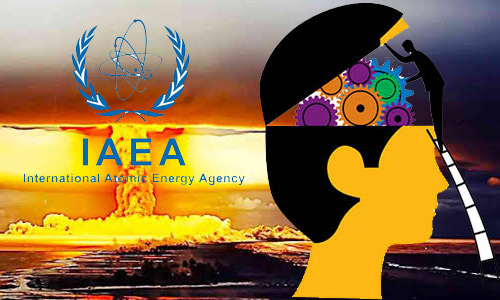In the absence of global nuclear disarmament, India’s strategic interests required effective, credible nuclear deterrence and adequate retaliatory capability. In the situations, Dr. Homi Jahangir Bhabha, the founding chairman of its Atomic Energy Commission, and the architect of its three-stage(thorium) programme, his plan for national development in November 1954 at the Conference on Development of Atomic Energy for Peaceful Purposes. Four years later in 1958, the Indian government formally adopted the three-stage plan and recognised that thorium was main source that could provide power to the Indian people for the long term. It adhered for long on the use of atomic energy for peaceful purposes but over the years the traditional concept of deterrence which aims to retain balance between mutual vulnerabilities and a capability to wreak unacceptable punishment on an aggressor has also undergone to symbolise a potential shift in focus from offence to defence.
Foundational period
.More than a year before Hiroshima and Nagasaki in 1944 Bhabhba declared, ‘when nuclear energy has been successfully applied for power production in, say, a couple of decades from now, India will not have to look abroad for its experts, but will find them ready at home. He was conscious enough about the future development of nuclear energy for the common good of mankind, He, in a letter to Sir Dorabji Tata Trust on 12th March, 1944 prophetically proposed for the setting up of an institute for fundamental research and a year later it was firmly laid as the Tata Institute of Fundamental Research with Dr. Bhabha as its Director. Indian nuclear programme, at least during its initial period clearly showed the ideas like tolerance and non-violence which were the features of Gandhi’s techniques of Satyagraha and the peaceful transition of power that characterised the birth of Indian Republic. Accordingly, despite two atomic bombs being dropped on Japan, India’s founding father demonstrated immense faith in the peaceful use of atomic energy. Apart from Krishna Menon and Dr. Bhabha who talked of sharing nuclear knowledge in common interest, Nehru himself asserted: “We will not make these bombs even if we have the capacity to do so and in no event we will use atomic energy for those most destructive purposes’. Thus, Indian nuclear research and programmes were purposeful, confined only to civilian research.
After Independence
In 1947, when India emerged as a free country to take its rightful place in the comity of nations, the nuclear age had already dawned. In the circumstances, India stressed on the creation of a broad-based science and technology infrastructure because it believed that technological backwardness made a country politically and economically vulnerable. It decided to produce all the basic materials because of nuclear power’s strategic nature and hence made the nuclear programme a major area of scientific research and development. The prevailing situation also compelled Nehru to announce before assuming office. ‘‘As long as the world was constituted on nuclear might, every country will have to develop and use the latest scientific devices for its protection.’’ However the formal annoucement of India’s nuclear policy was made by Nehru on 10th May 1954, when he said in Lok Sabha, ‘I should like the House to remember that the use of atomic energy for peaceful purposes is far more important for a country like India whose power resources are limited, than for a country like, say, France, an industrially advanced country’’. Nehru’s statement identified the basic components of India’s nuclear policy. They are : (i) Not to make nuclear weapons;(ii) To work for and support nuclear disarmament and nuclear arms control measures; (iii) To develop and use nuclear energy for peaceful purposes, and (iv) Not to accept discriminatory international inspection and safeguard in respect of national nuclear facilities.
India’s commitment to the peaceful use of nuclear energy during the stewardship of Jawaharlal Nehru remained firm. No doubts were cast on his bona fides in his lifetime. Not only that but Nehru assured the world on behalf of any future Government of India that his country would not go in for nuclear weapons. Inaugurating the first reactor on Asian soil on 20th January 1957, he said, ‘‘……No man can prophesy the future. But I should like to say on behalf of my Government-and I think I c an say with so me assurance o n b e half o f an y fut ure Government of India-that whatever might happen, whatever the circumstances, we shall never use this atomic energy for evil purposes. There is no condition attached to this assurance,
Modern nuclear motivations
In context, many analysts including Lewis A. Dunn and Herman Kahan and Meyor have listed various reasons or pressures encouraging a country to go nuclear. Dunn and Kahan have listed as many as fourteen factors which have been classified under several heads such as security, status or influence, bureaucratic and domestic. They have also indentified eight types of events as “trigger” activating consideration on the pressure or reasons for a country going nuclear. These are :(i) Involvement in foreign crisis;(ii) Reduction in alliance credibility; (iii) Nuclearisation of the other countries; (iv) Weakening or breakdown of international constraints;(v) Domestic crisis; and (vi) Changed perception and utility of nuclear weapons. Another analyst Meyor notes three basic types of incentives. First, incentives of international political prestige and image-building. These can affect the country’s appearance and posture, Second, incentives to advance national military and security objectives, to minimise external threats to the country and to strengthen its relative power position and strength. Third, incentives to support and promote domestic policies and to prevail in domestic political struggles. In general, four sets of arguments are frequently advanced by threshold states aiming to retain the nuclear options–military security; political prestige and influence; economic gains; and domestic pressures and compulsions.
Home » Opinion » Changing Perspectives of Nuclear Concept
Changing Perspectives of Nuclear Concept
| Rajkumar Singh

